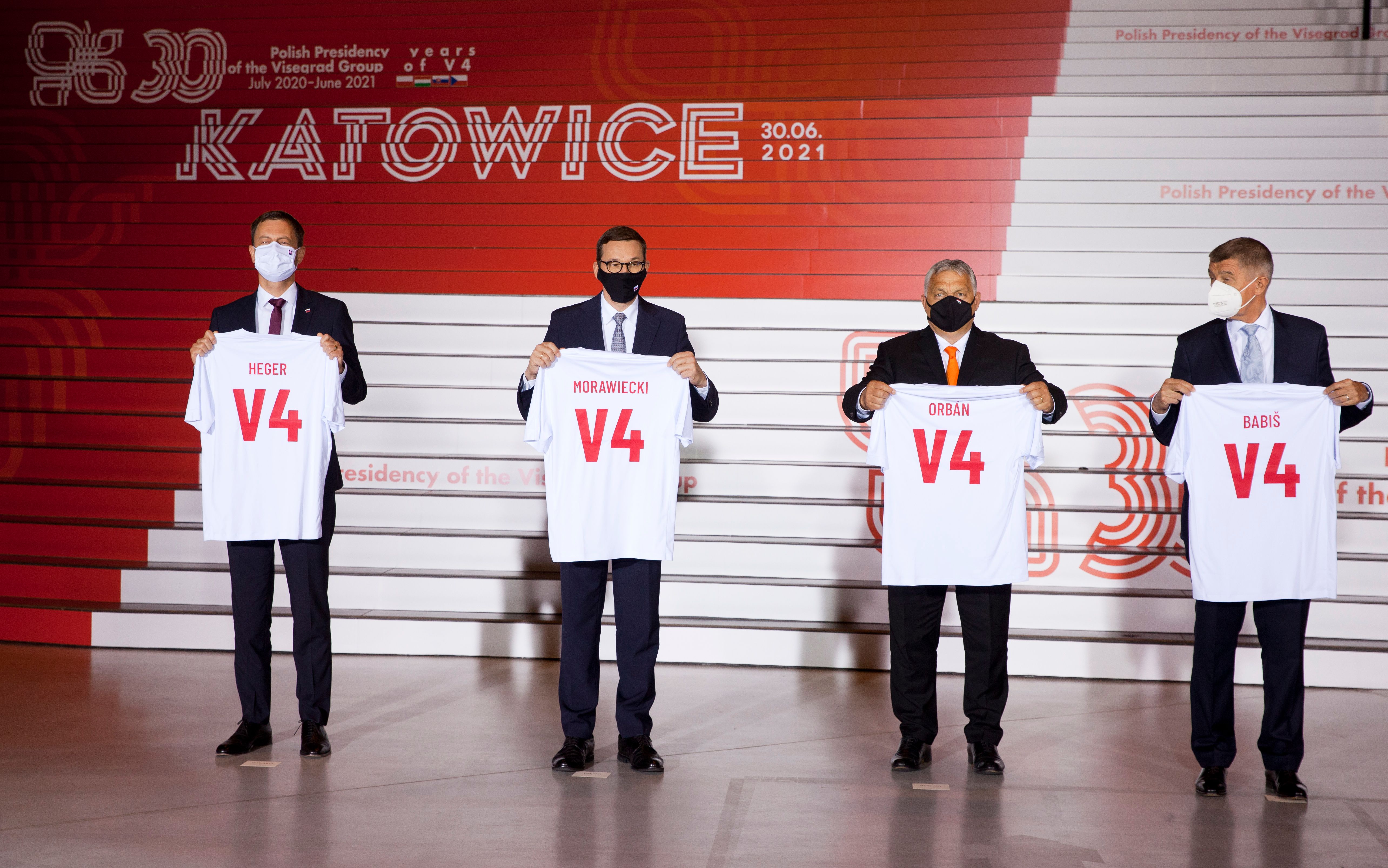Hungary Takes Over the V4 Presidency
On 1 July, Hungary took over the annual presidency of the Visegrad Group (the V4—Czechia, Hungary, Poland, Slovakia). It will focus on the economic recovery after the pandemic. At the same time, its management of the group’s activities will serve to promote the country’s views in the discussion on the future of Europe.

What are the priorities of the Hungarian presidency?
Hungary begins its V4 presidency under the slogans of restoring stability in the EU after the pandemic, economic and social reopening, and developing partnerships in the “V4+” formula with EU and non-European countries. It is a presidency programme that continues the previous ones in which the group’s activities focus on consulting positions on European policy, primarily the implementation of the 2021-2027 EU budget and the recovery fund, the single market, migration, and enlargement policies. The group’s proactive participation in the Conference on the Future of Europe will be an important area of political cooperation. Hungary wants to involve the Slovenian EU Council presidency in the common thinking, as this presidency (also begun on 1 July) will play an important role in organising the Conference. Hungary may be calculating that the political similarities with the Slovenian government will enable its voice to break through into EU forums.
How will the presidency contribute to the discussion on the future of Europe?
The presidency programme does not signal the ambition of the V4 to represent a common position in the discussion. It only sets out principles that should be considered by the EU institutions in the course of the dialogue. It postulates focusing on the economic aspects of strengthening the Union and emphasises the importance of subsidiarity, transparency, and equal treatment of Member States. It also proposes that national parliaments should be formally included in the consultations. Due to the lack of a joint V4 proposal regarding the future shape of the EU, the presidency may be used to promote the views of the Hungarian government on EU reform. Among other ideas, it puts forward changes in the electoral procedure of the European Parliament or removing the objective of advancing the integration process from the Treaty on European Union. These ideas are also promoted by the Hungarian authorities through information campaigns in foreign press. This serves to build up the governing Fidesz’s political position on the European scene after the party broke with the European People’s Party in March this year.
How does the presidency want to contribute to increasing the security and stability of the V4?
From Hungary’s point of view, migration remains the greatest challenge to EU security. The presidency therefore wishes to continue to coordinate positions on the EU’s Pact on Migration and Asylum, especially regarding the solidarity instruments that Member States apply that do not take in refugees through relocation. As Hungary was the only V4 member directly critical of the European Commission’s reform proposal, the country will want to ensure the unity of the group in this matter. Hungary also plans to continue cooperation in the group to combat the effects of the pandemic—given a lack of other means, this will continue to be mainly information exchange. The presidency also wants to explore the possibility of introducing regular cybersecurity consultations and involve the UK in this area of cooperation.
What are the plans towards the EU neighbourhood?
Unlike Poland, Hungary does not perceive the stability of the EU’s eastern neighbourhood as a priority. The presidency supports the implementation of the EU’s economic plan for a democratic Belarus, but does not plan to take any action on the group’s behalf. It underlines the importance of conditionality in supporting the Eastern Partnership (EaP) countries, without taking into account external factors destabilising their situation, such as Russia’s occupation of parts of Ukraine’s territory and the increasing military tensions in the region. Hungary, on the other hand, maintains strong political support for the Euro-Atlantic integration of the Western Balkans despite previous actions that put into question its intentions. It also proposes practical V4 cooperation with Western Balkans states in, for example, supporting their energy transformation or strengthening border protection.
What partnerships does the presidency intend to develop in the “V4+” formula?
Hungary plans to use this formula extensively. It wants to work closely with Slovenia and France, which will hold the EU Council presidency in the coming year. This is a novelty in the application of the “V4+”. Hungary wants to use this format to take part in the preparations of the EU’s EaP summit, which is to be held during the Slovenian presidency. However, in light of the Hungarian government’s attitude towards the Partnership, this does not necessarily mean a positive agenda. Meetings in the “V4+” format will be held at the level of foreign ministers with traditional European partners—apart from those in the EaP and the Western Balkans, also with Germany, the UK, and the Nordic and Baltic states. In the global dimension, Hungary wants to maintain a high level of political and economic cooperation with South Korea and Japan. It will also continue the training programme for start-ups in the “V4+Israel” format. In addition, some partnerships will return to the presidency’s agenda that are specific to Hungary, such as Egypt or Central Asia. A new element in tightening cooperation with non-European countries will be the launch of the “V4+Morocco” format.




